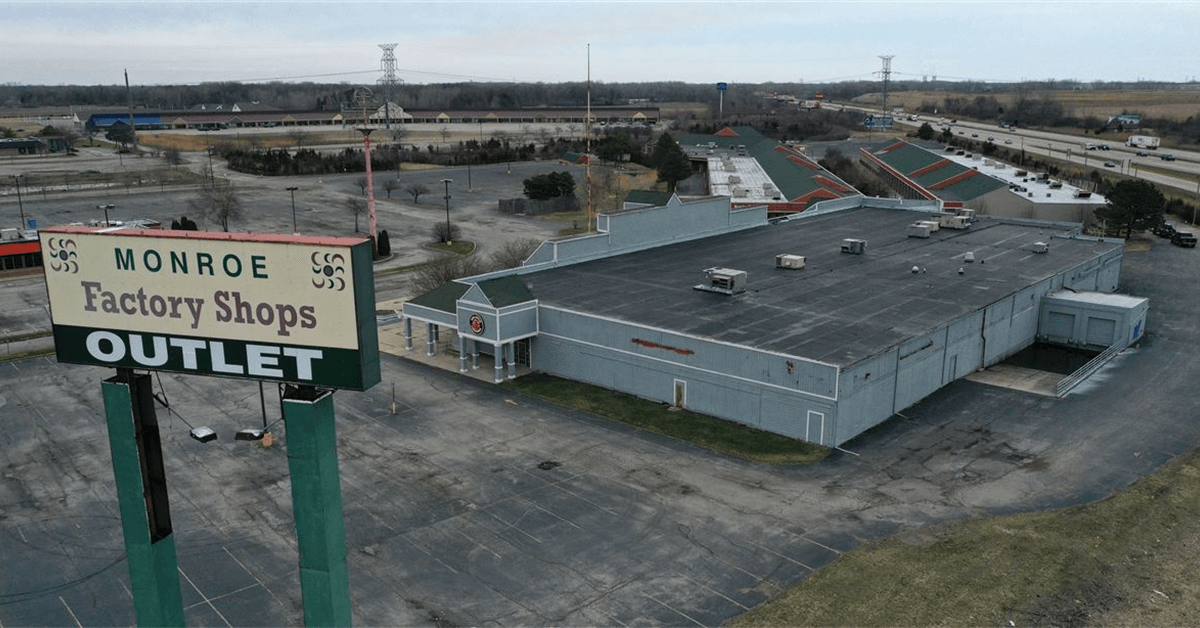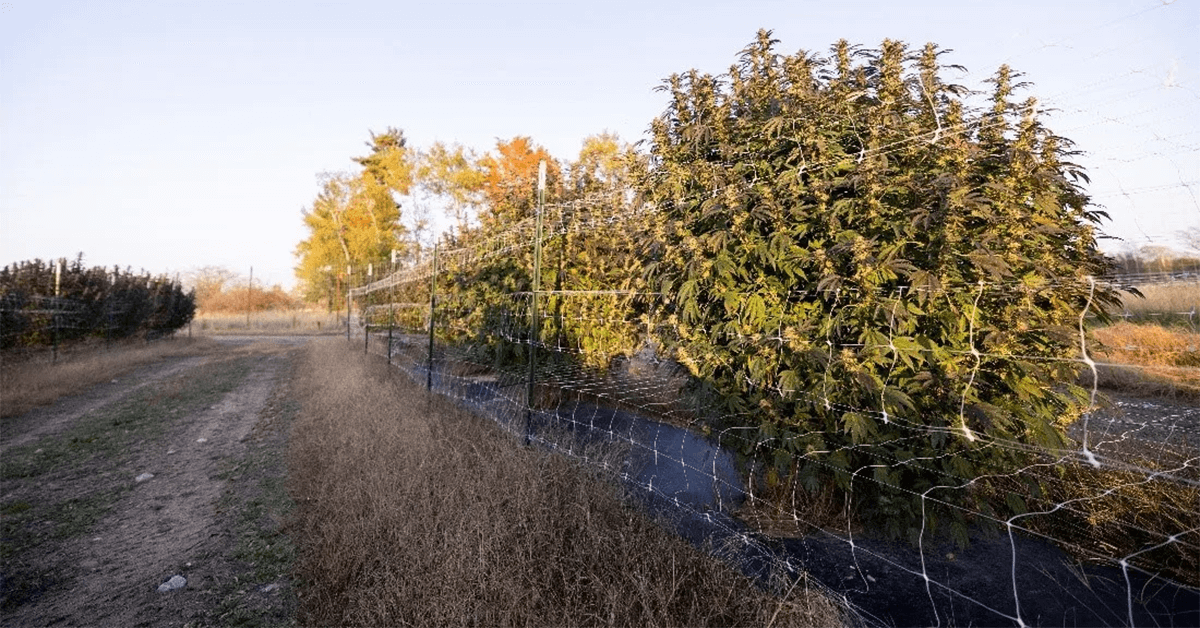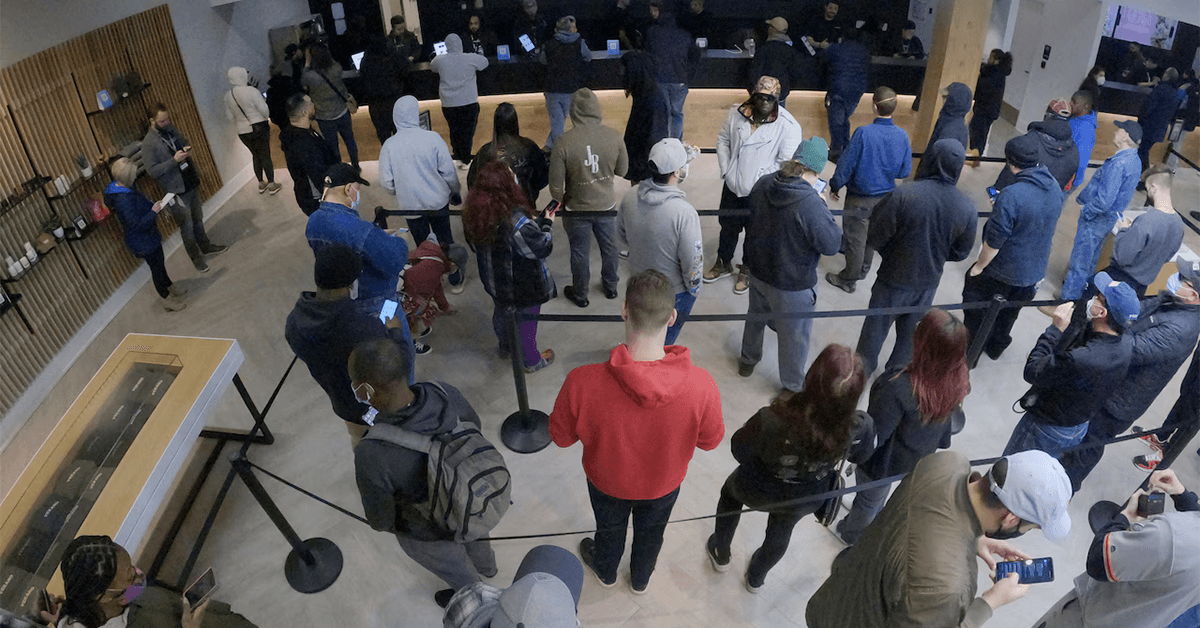New Life for Monroe Outlet Center with Cannabis Operations

In Monroe Charter Township, Michigan, a transformation is taking place at the long-neglected Monroe Factory Shops on LaPlaisance Road. Once bustling with retailers and eateries, the area had succumbed to vacancy and disrepair. However, thanks to a change in direction led by local entrepreneur Chris Harter, the site is set to become a new hub for cannabis cultivation and retail.
Originally known as the Manufacturers Market Place, and later as the Horizon Outlet Center, the 22-acre site had seen better days with its primary retail space mostly abandoned since 2015. As nearby fast-food outlets closed one by one, the area seemed destined for continued decline. However, Harter, a Monroe native with business ties in both Michigan and Atlanta, saw potential for revival not through traditional retail, but through Michigan's burgeoning cannabis industry.
Harter's vision emerged following unsuccessful attempts to revitalize the outlet center with traditional retail formats. After Michigan legalized medicinal cannabis in 2008 and moved towards legalizing recreational cannabis in 2019, Harter pivoted towards transforming the site into a location suitable for growing and dispensing cannabis. His plan includes the establishment of at least two cultivation facilities and three dispensaries.
One of these dispensaries is set to occupy the former Burger King building, with substantial renovations already underway to repurpose the internal spaces for their new role. Harter's former business associates, now operating under Terra Lusso LLC, have committed to developing 15,000 square feet of the center for similar purposes. Additional groups involved include a collaboration between a Toledo real estate investor and a Detroit celebrity, as well as another led by a Detroit businessman.
While nearly 70 percent of the site's space has been pre-leased, all tenants are currently in a holding pattern as they await the passing of local ordinances crucial for operational guidelines and community safety standards. The legislative process faced delays after initial attempts to pass the necessary ordinances were met with local resistance and procedural setbacks.
Monroe Charter Township Supervisor Alan Barron is optimistic about the project's impact, suggesting that the presence of dispensaries might catalyze further commercial activity, drawing in additional businesses and potentially replicating the multi-attraction draw seen in tourist locations like Frankenmuth, Michigan.
As the township works towards finalizing the marijuana ordinances, with key meetings and hearings scheduled across the coming months, the project's progress reflects a broader trend of repurposing underutilized retail spaces to accommodate new industries. This development not only promises a revival of the once-thriving outlet center but also represents a significant shift in local business dynamics, potentially setting a precedent for similar transformations elsewhere.
Holly Village Enhances Parks and Scholarships with Help from Lume Cannabis

The Village of Holly is experiencing enhancements in its recreation offerings thanks to a notable contribution from Lume Cannabis Company, a prominent cannabis retailer in Michigan. The company has committed $50,000 to support the village's parks department and various community initiatives, including a scholarship program. This funding effort is partly sourced from the annual sales at Lume's store located on Grange Hall Road in Holly.
Out of the total donation, $10,000 will be allocated directly to the village's parks department, with an additional $7,000 designated for the acquisition of new playground equipment. Jerry Walker, the Village of Holly Manager, expressed gratitude for the partnership with Lume, highlighting the positive impact of the company's involvement since it began operations last year. "Lume has been an incredible partner since their doors opened last year and the company's investment in our community is allowing us to create family-friendly amenities at our parks," Walker said. He also noted that the funds would support educational scholarships aimed at helping local residents pursue careers as police officers and firefighters, as well as backing the village's Fourth of July fireworks celebrations.
The presence of cannabis retailers like Lume not only boosts local economies through such direct contributions but also benefits Michigan communities through the shared tax revenue generated from cannabis sales.
Lume operates 38 locations across Michigan, including four additional stores in Oakland County. Doug Hellyar, the President and COO of Lume, reiterated the company's commitment to community support. "At Lume, we are dedicated to being a good neighbor and serving our loyal customers," said Hellyar. "The Village of Holly has been so welcoming since we opened and we are thrilled to have an opportunity to help support the community by investing in local parks and scholarships."
This partnership exemplifies how cannabis companies can play a pivotal role in fostering community development and support through strategic investments and engagement with local programs.
Grown Rogue Expands Stake in Michigan Cannabis Operations

Grown Rogue International Inc. has recently enhanced its stake in its Michigan operations by increasing its ownership from 52.2% to 80%. The company executed this expansion through two key transactions, totaling a value of $2.8 million.
The financial structure of the deal included an upfront cash payment of $200,000, with the remaining $2.6 million covered through sellers' notes, repayable over four years. This acquisition targets the company's subsidiary, Golden Harvests, LLC, which oversees its Michigan facilities. These facilities boast an 80,000 square foot space, of which approximately 15,000 square feet is dedicated to the flowering of cannabis.
Further details of the transaction reveal a complex structure of ownership and investment. Grown Rogue's related entity, Canopy Management, LLC, currently holds a 60% interest in Golden Harvests. Notably, Canopy itself is 87% owned by Grown Rogue indirectly. As part of the agreement, Grown Rogue acquired the remaining minority interest in Canopy for $800,000. This payment plan includes a 20% down payment in cash and subsequent monthly payments over a four-year period at an interest rate of 5.2% per annum.
Additionally, Grown Rogue purchased a 20% minority stake in Golden Harvests directly for $2 million, agreeing to minimum quarterly cash payments across four years. This strategic move places Golden Harvests at a valuation of $10 million, reflecting its significant market potential. The company plans to fund these payments using its existing cash reserves and through cash generated from ongoing operations.
Moreover, Grown Rogue retains the option to acquire the final 20% of Golden Harvests, ensuring future control is based on fair market evaluations. It's noteworthy that Dave Pleitner, an insider at Grown Rogue, holds the minority interest in Golden Harvests, and certain directors of the company possess 8% interest in Canopy.
CEO Obie Strickler emphasized the strategic importance of Michigan to Grown Rogue, noting the state as a pivotal market where the company first demonstrated its operational capabilities beyond its original base in Oregon. He expressed enthusiasm about the increased ownership and discussed potential plans to further develop and maximize the facility's additional 25,000 square feet of space.
In response to these developments, Grown Rogue's shares saw an 8.9% increase so far today, trading at $0.71 per share, illustrating positive investor sentiment following the announcement of the expansion.
New Firetruck in Jackson County Funded Entirely by Cannabis Revenue

Leoni Township in Jackson County, Michigan, is set to enhance its fire safety capabilities with a new firetruck funded by cannabis tax revenue. The township's Board of Trustees has approved the purchase of a 2000-gallon tanker truck from Rosenbauer Fire Apparatus, utilizing $842,000 from the Marijuana Excise Tax funds. This decision aligns with the Board's intent to use the tax funds for the benefit of the entire community, as emphasized in the township's recent spring newsletter.
Leoni Township, which hosts the highest number of marijuana dispensaries in Jackson County with ten licensed facilities, collected over $590,000 in cannabis tax revenue in 2023 alone. This substantial sum, derived from state treasury records, marks a significant contribution to local public funding.
The township's ability to fund the firetruck purchase without a public millage represents a notable shift in local financial strategy, offering a cost-effective solution by avoiding additional fees and interest. Mike Jester, the Leoni Township Administrator, highlighted the benefits of this approach, noting the long-term savings and the avoidance of direct financial requests to the public.
The new truck, expected to be delivered in May 2025, is slightly smaller than the units acquired in 2017 but represents a substantial upgrade over the existing 65-foot ladder truck, which is nearing the end of its operational life. According to Scott Grajewski, Public Safety Director for Blackman-Leoni Township, while the current ladder truck remains functional, its future reliability is uncertain. The addition of the new truck is anticipated to significantly boost the township's and the broader county's fire response capabilities, particularly given the frequency with which Leoni Township assists neighboring areas with large fires.
This investment not only underscores the township's commitment to enhancing public safety infrastructure but also demonstrates the tangible benefits of cannabis tax revenues in supporting critical local services.
Cannabis Industry Booms in Southwest Michigan with Increased Dispensary Presence

The cannabis industry continues to expand in Southwest Michigan, with an increasing number of dispensaries opening their doors in locales such as Three Oaks, New Buffalo, Buchanan, and Niles. Green Stem dispensary in Niles celebrated its fourth annual 4/20 event since its inception in 2020, reporting a successful day characterized by a surge in online orders and significant in-person traffic.
Lynch Lindgren, the Brand Manager at Green Stem, noted a substantial turnout for the event. "We're delighted to report that we welcomed over 1,000 visitors this year, which not only boosts our sales but also brings more people to the area, positively impacting the local economy," Lindgren commented. The event has become a magnet not just for local residents but also attracts visitors from out of state looking to partake in the festivities.
According to Lindgren, the dispensary has started to surpass sales records previously set during peak vacation periods like the Fourth of July, indicating a robust growth trajectory for the business. "It's a significant shift from four years ago. Initially, we saw the same million people making purchases, but now the number has expanded to six million. There's ample opportunity for growth and expansion in the market," Lindgren explained.
Moreover, Green Stem has observed a consistent increase in sales coinciding with major holidays, including the Fourth of July and Memorial Day, suggesting a broader trend of rising cannabis sales during festive periods.
Illinois Governor Highlights Economic Growth Through Cannabis Legalization

During a recent event in Grand Rapids, Michigan, Illinois Governor J.B. Pritzker emphasized the economic and social benefits of cannabis legalization, an initiative he aligned with Michigan's own advances in the industry. Speaking on April 20th—a date significant within cannabis culture due to its association with marijuana—Pritzker celebrated Illinois' success in legalizing adult-use cannabis, highlighting the positive impact on state revenue and job creation.
Pritzker noted, "I wanted to come up here on 4/20, because we, too, legalized cannabis in the state of Illinois, and I know that's been a boon to not only state revenues but also to business and job creation." His comments underscore the transformative potential he sees in the cannabis industry, not just in Illinois but as a model that could be mirrored effectively in Michigan.
On the social media platform X, Pritzker further expressed his pride in Illinois' role in fostering this burgeoning industry: "To be blunt: we're proud to have sparked a new industry when we legalized adult-use cannabis." His rhetoric not only celebrates the economic advantages but also the state's progressive stance on cannabis, positioning Illinois as a leader in the movement toward broader legalization.
The success in Illinois reflects broader trends in states that have embraced legal cannabis markets, suggesting significant economic opportunities through increased tax revenues and job creation. These developments are particularly noteworthy as more states consider similar legalization measures to capture the economic and social benefits observed in pioneering states like Illinois and Michigan.
This focus on the tangible benefits of legal cannabis underscores the broader potential for the industry to contribute positively to local economies and job markets, providing a template for other states considering similar paths.


 Helpful Links
Helpful Links